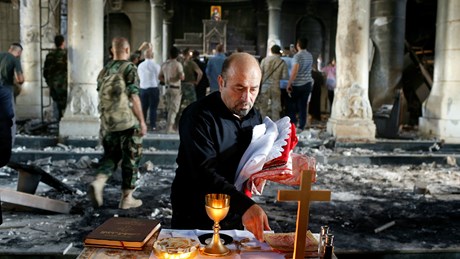Middle East believers appreciate the sentiment of the new president’s executive order. But not its strategy.

Married in December to a Syrian woman with American citizenship, Fadi Hallisso went to Beirut to apply for a green card.
A Syrian Christian, Hallisso has worked with refugees in Lebanon since 2012. Funded by different American agencies, he was no stranger to the US government. He even testified about the situation in Syria to the US State Department and to Harvard Divinity School.
But this week, Hallisso was told he was no longer welcome to apply. The new US administration said so.
“It is very humiliating to be put in the category of potential terrorist,” said Hallisso. “Just because I carry a certain passport.”
As more details of President Donald Trump’s new security policies emerge—including a promise to prioritize Christian refugees for resettlement in America—much appears lost in translation.
“This executive order has created a new atmosphere very hostile to people in the region,” said Chawkat Moucarry, World Vision’s director for interfaith relations—and Hallisso’s uncle. “Unwritten rules seem to be implemented as a result.”
Is Trump’s executive order on refugees a de facto “Muslim ban”? Is it not? Is it prudent? Is it overdue? As American Christians debate these questions from the small towns of Middle America to the nation’s major airports, so also Arab Christians are trying to figure out what is going on.
“I read the executive order,” said Adeeb Awad, chief editor of al-Nashra, the monthly magazine of the Presbyterian Synod of Syria and Lebanon. He remarked upon its temporary nature and—in his estimation—its reasonable restrictions and its actual improvement upon the upper limits of refugee …
Source: Christianity Today Most Read